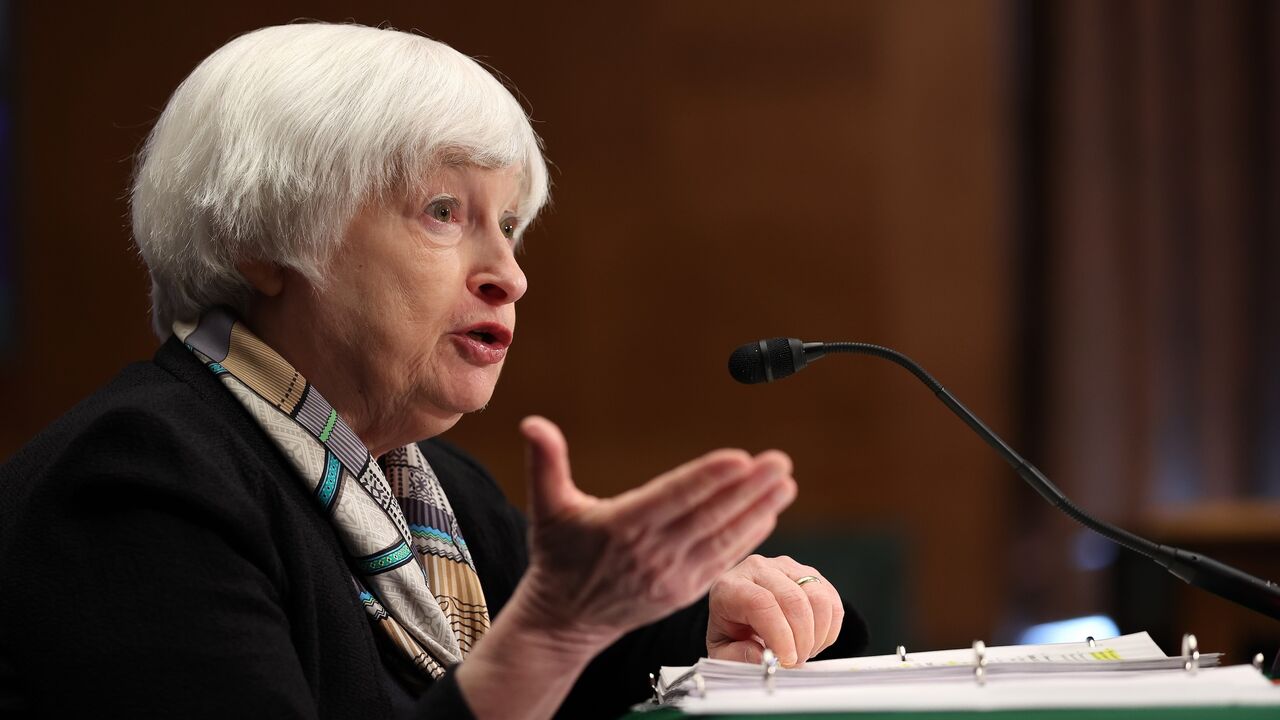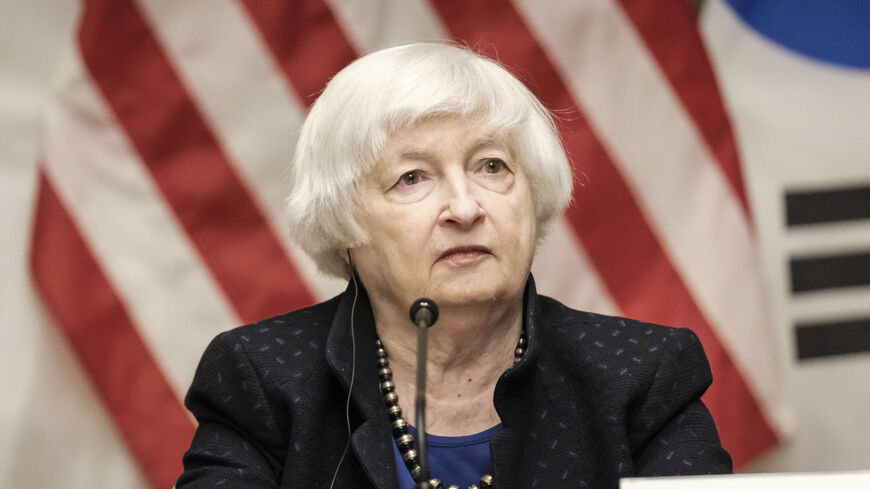Yellen urges Israel to ease West Bank’s economic woes
Treasury Secretary Janet Yellen called for Israel to reduce barriers to commerce in the West Bank and reinstate work permits for Palestinians that were revoked after Oct. 7.

WASHINGTON — US Treasury Secretary Janet Yellen said she urged Israeli Prime Minister Benjamin Netanyahu to ease restrictions in the West Bank imposed after Hamas’ Oct. 7 massacre, which have left an already cash-strapped Palestinian economy in tatters.
More than four months of war between Israel and Hamas has taken a toll in the West Bank, where the economy contracted by more than one-fifth in the last quarter of 2023, according to the Ramallah-based Palestinian economic ministry.
Israel has placed new restrictions on freedom of movement in the West Bank and revoked work permits for thousands of Palestinian day laborers in response to the militants' attacks. A dispute over the tax revenues that Israel disperses to the Palestinian Authority has left the Fatah-led government unable to fully pay public salaries, including those of its security forces, fueling fears of further instability in the volatile West Bank.
During a press conference in Brazil ahead of a meeting of G20 finance ministers, Yellen said she wrote to Netanyahu with a “number of steps that the United States believes must be taken” that are “vital for the economic well-being of Palestinians and Israelis alike.” The top Treasury official specifically called for both "reducing barriers to commerce" in the West Bank and reinstating work permits for Palestinians.
After Hamas' cross-border attack, Israel indefinitely suspended the permits of some 100,000 Palestinians in the West Bank who crossed into Israel to work, mainly in the construction and agriculture sectors. Most remain unemployed, although 8,000-10,000 were given permission by Israel in December to resume their work in West Bank settlements following heavy pressure from the businesses that employ them.
Yellen’s comments come as the Biden administration is pushing for a “revitalized” PA — which currently exercises limited self-rule in the West Bank and coordinates with Israel on security matters — to govern Gaza when the war ends.
In what was seen as the first step toward reform, Palestinian Prime Minister Mohammad Shtayyeh submitted his government’s resignation on Monday. State Department spokesperson Matthew Miller said it's up to the Palestinians to choose their own leaders, but that the administration welcomes any actions to “reform and revitalize” the PA.
Push for a truce
The United States is meanwhile pushing for a humanitarian truce in Gaza, where the Gaza Health Ministry says more than 29,000 people have died in the Israeli military campaign launched in retaliation for Hamas' killing of 1,200 people in southern Israel. President Joe Biden said Monday he hopes there will be a cease-fire within a week, which would allow for the return of some hostages and increased humanitarian aid to Gaza. Hamas officials have suggested those comments were premature.
Yellen also noted that Palestinian tax revenues have started to reach the West Bank after an agreement was finalized last week for Norway to help facilitate the transfer of funds.
“I welcome news that an agreement has been reached and funds have started to flow. This must continue,” Yellen said.
Since the 1990s, Israel has collected taxes and customs on behalf of the PA, which prior to the war accounted for roughly 65% of its annual budget. Despite its expulsion from Gaza by Hamas in 2007, the PA still helps pay for basic services in the coastal enclave using the monthly tax revenue supplied by Israel.
In November, the Israeli Finance Ministry led by extreme-right politician Bezalel Smotrich announced it would be withholding funding equivalent to what the PA spends in Gaza, citing security concerns. The PA refused to accept the partial tax transfers, forcing it to slash salaries to its security forces and other employees.
Under pressure from the Biden administration, Israel's security cabinet agreed in January to use Norway as an intermediary to transfer the funds. The Norwegian Foreign Ministry announced this month it would distribute the revenue for the West Bank to the PA while retaining the funds meant for Gaza.








